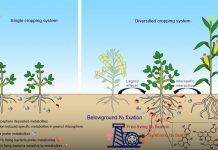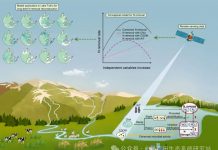Baohai Li Qing Li Liming Xiong Herbert J. Kronzucker Ute Krämer and Weiming Shi. Arabidopsis plastid AMOS1-EGY1 integrates ABA signaling to regulate global gene expression response to ammonium stress. Plant Physiology 2012 pp.112.206508.
Abstract
Ammonium (NH4+) is a ubiquitous intermediate of nitrogen metabolism but is notorious for its toxic effects on most organisms. Extensive studies of the underlying mechanisms of NH4+ toxicity have been reported in plants but it is poorly understood how plants acclimate to high levels of NH4+. Here we identified an Arabidopsis (Arabidopsis thaliana) ammonium-overly-sensitive 1 (amos1) mutant that displays severe chlorosis under NH4+ stress. Map-based cloning shows amos1 to carry a mutation in EGY1 which encodes a plastid metalloprotease. Transcriptomic analysis reveals that among the genes activated in response to NH4+ 90% are regulated dependent on AMOS1-EGY1. Furthermore 63% of AMOS1-EGY1-dependent NH4+-activated genes contain an ACGTG motif in their promoter region a core motif of abscisic-acid (ABA)-responsive elements. Consistent with this our physiological pharmacological transcriptomic and genetic data show that ABA signaling is a critical but not the sole downstream component of the AMOS1-EGY1-dependent pathway that regulates the expression of NH4+-responsive genes and maintains chloroplast functionality under NH4+ stress. Importantly abi4 mutants defective in ABA-dependent and retrograde signaling but not ABA-deficient mutants mimick leaf NH4+ hypersensitivity of amos1. In summary our findings suggest that an NH4+-responsive plastid retrograde pathway which depends on AMOS1-EGY1 function and integrates with ABA signaling is required for the regulation of expression of NH4+-responsive genes that maintain chloroplast integrity in the presence of high NH4+ levels.







